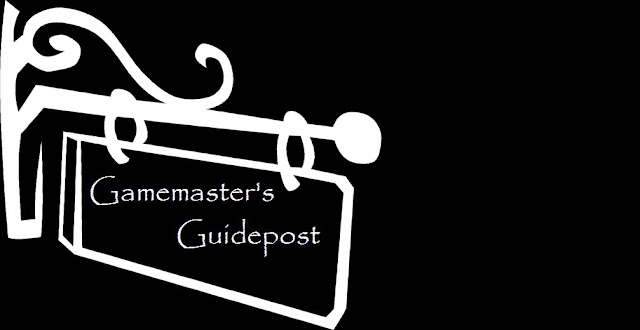Guest Post by Emily “Bruno” Smirle
When designing a game setting with supernatural or mystical elements, it may be necessary to create a firm definition of the “soul” – what is it, who has it, what does it do for (or to) you?
Theologists and philosophers have debated the subject endlessly throughout human history; the quickest solution is often to pick a real-world religion or philosophy as your model and crib from it. This is fine for description, but real-world sources are inconsiderate enough to neglect the game-mechanical effects and more exotic situations found in RPG settings.
Therefore for games, here are some questions to ask yourself about the soul and its role in your campaign; the game mechanics can help define what the soul is, or the definition can help you decide on the implications for your game mechanics.
Separation
Can the soul be separated from the body without one or the other being destroyed/slain in the process? The answer to this question dictates everything from categories of the undead possible in the setting to whether specific threats (or tricks) involving stealing souls, hiding souls, etc. can be performed without automatically being murder.
If the soul always immediately transitions to the afterlife (reincarnates, dissipates, etc.) when removed, ghosts cannot be lingering souls, souls cannot be traded or stolen, and demons don’t “collect” souls in a direct sense. It may also be very tricky to repair the damage. If it stays intact (absent some direct attack on the soul itself), then souls can be hidden, misplaced, swapped, or sold. A “homeless” soul might automatically become a ghost or similar being. Can it ever go home again? Is astral projection casting-forth the soul?
If the body always dies when the soul is removed, then a soulless body is by definition a corpse; it is intimately linked to the concept of the life, and/or “life-force”. Damage to the soul could be fatal; this also implies that sin and bad living do not damage the soul – or all sinners are sickly.
Transition: Death, Undeath
Can a dead body house a soul? Is a dead body with a soul automatically an “undead” body, or can it merely be a gruesome soul jar?
If the soul is life or life-force, is resurrection the only way to put a soul back in a dead body? If so then undead are either all the result of a lingering soul, or of external forces (spirits, magic) reanimating the body. Can you put the wrong soul back in a body?
If the soul always transitions when removed from the body, but there are still ghosts in the setting, then there is at least one other intangible part to a person, and you need to name it. If a ghost is a powerful psychic signature and memory, is it really anything other than “the mind”? Or is “the mind” a third intangible?
If you need a soul involved to make undead, it implies soulless creatures cannot be undead. If you need a soul for intangible undead, but physical undead can be walking corpses animated by other forces, then this has more implications for what kinds of undead are in the setting.
Also-rans
Assuming at least some kinds of undead have souls:
What supernatural effects can target the living and the (souled) undead, but not “things”? Is the difference the soul? Undead are axiomatically not-alive, so life may not be the distinction.
Can effects that target the mind target living and undead people, but not animals, golems, computers, demons, etc.? This implies that the “mind” that is targeted by “mind magic” is a part of the soul or at least entangled with it, and the things that are exempt are quite different. Same question for other kinds of magic – if Body Control spells don’t work on plants, or on animals, or on elementals, or some other category (despite being physical entities) this has interesting implications.
Does every classification of soul-less being have their own special set of supernatural effects, like animal spells, elemental spells, plant spells, etc?
Do animals have their own set of supernatural effects separate from those for the souled? Or are they just naturally immune to whole swathes of magic with no substitutions?
Are there non-undead “people” that aren’t supposed to have souls? Fae, elementals, demons, etc. The implication is that they won’t be able to e.g. project astrally, be soul-trapped, etc. and will be immune to the class of soul-affecting effects.
Real Weirdies
Are there “people” who are composed of nothing but souls? Solidified souls, semi-corporial entities, or that favorite of science fiction, disembodied consciousnesses. Does this protect them from another subset of magic? Effects that require a “real” body? Does it make them vulnerable to a subset of magic?
Does having a body for your soul to go in protect it from various offenses?
In-Game Knowledge
How much of this is already known to the people in the game world is a separate question. Some questions may be yet unanswered, or popular knowledge may be out-right wrong. Some questions may be forbidden; forbidden knowledge is the best kind of knowledge, it spawns so many adventure ideas.
Knowing what the rules are makes it easier to determine when someone is cheating the rules, and it makes it more interesting that they are. If souls that have no bodies escape to the afterlife immediately, then that ghost may be a Scooby-Doo style fake… or a completely different class of entity!


Pingback: GURPSDay Summary May 11, 2018 – May 17, 2018 - Gaming Ballistic